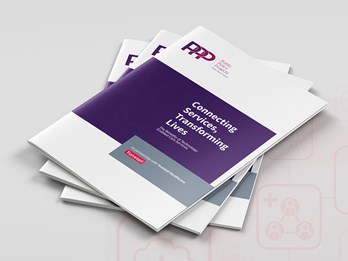InConversation: Gavin Bashar
Oct 15, 2020
Tunstall has been on an evolutionary journey since it’s inception in 1957, pioneering new products and services to meet the evolving demands of the market. Innovation is embedded into Tunstall culture; we have always strived to lead the market, anticipating what may be needed in the future, and delivering creative solutions. In 2020 there are a number of areas driving the change:
Integration
Ways of enabling health and social care to work more closely together has been high on the agenda for many years, and remains so; there is an increasing focus on redefining the governance and provision of care
Digitisation
The move to a digital communications network in the UK has led to a plethora of new, innovative products and services, and a capability not previously imaginable
COVID-19
The pandemic we are currently living through has meant health and care services needing to change more rapidly than ever before, including accelerating the adoption of technology enabled services such as telecare and telehealth to assist individuals in a variety of settings.
Tunstall’s recent collaboration with Public Policy Projects produced Connecting Services, Transforming Lives - The Benefits of Technology-Enabled Care Services, an in depth report with a range of case study examples of the benefits of technology in NHS and social care, along with a series of recommendations. One of these case studies was our work with NHS Calderdale Clinical Commissioning Group on the Quest for Quality in Care Homes. The programme has seen more than 1,300 residents in 38 homes supported with telecare, telehealth and a multi-disciplinary team, with focus on standardising the care delivered and improving quality of life for residents. This proactive approach delivered significant reductions in emergency admissions (down 33%), the cost of hospital stays reduced by over £1.2m and GP care home visits reduced by 45%.
Just as technology advances, so do people’s needs change over time, especially in care settings, which is why it’s important to ensure that technology doesn’t just meet their needs today, but can be easily adapted to support them throughout their care journey. As we transition into the digital future, we need to recognise that despite our minimally invasive approach, over time an individual may need more services provided to try to keep them living with the same quality of life, and factor this into our solutions.
As technology develops exponentially, the future will see services becoming increasingly proactive, and based on predicting and preventing events rather than simply reacting to them. Tunstall is already on this journey, developing Tunstall Cognitive Care, which will use information pulled from a variety of sources monitoring behaviours to provide data-driven insight. We’re working closely with third parties, academics and customers to further develop the predictive capability of AI and machine learning to help us deliver better care.
It’s difficult to imagine the future of care over the longer term, because of the rate of advancement of technology, but it’s clear to me that data analytics will be at the heart of addressing future needs and promoting healthy ageing in the community. I believe we will make progress towards the goal of more integrated health and care services, enabled by the integration of data. I also predict a shift from care being delivered in group living environments, to more people being supported at home, and the trend towards more personalised care continuing.
Despite my passionate belief in the power of technology to transform people’s lives, I also feel that we will always need to augment this with physical caring, and that one of the biggest benefits of technology enabled services is that it can enable human contact to be given when and where it’s needed most.

